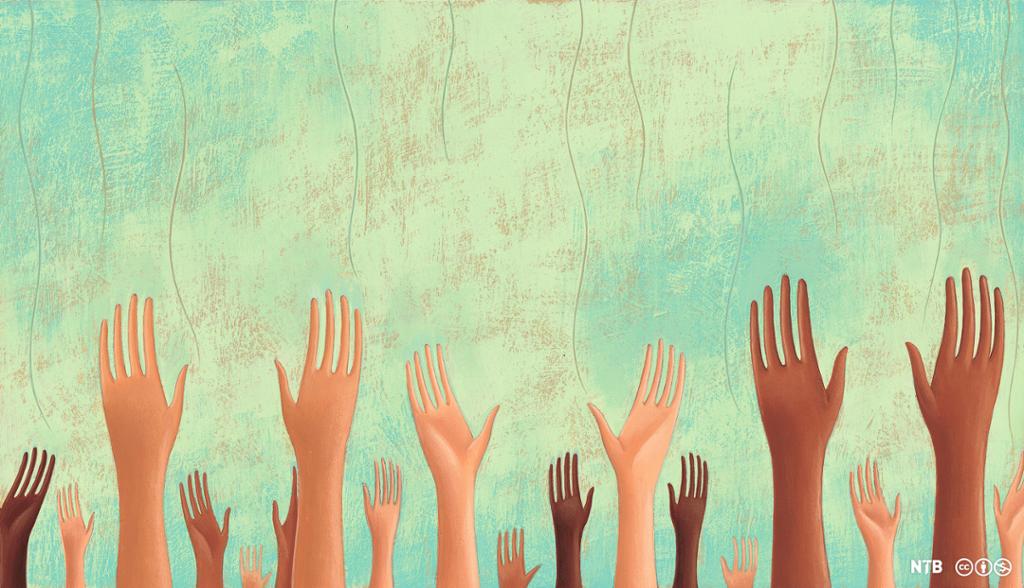Living in a Multicultural World

Living in a globalized world makes it easy to communicate over borders and across cultures, and the life we lead today is highly influenced by cultures, traditions and languages from far away. So, even if you seldom travel abroad or communicate with people from other cultures, you can, in fact, call yourself multicultural. Just test yourself: Have you ever:

- had pizza, sushi, pasta, or pita bread dipped in hummus?
- hummed tunes by Beyoncé (or Bach) while taking your morning shower?
- had Italian coffee?
- watched American sitcoms or Bollywood movies?
- kissed friends on the cheek, twice?
- done yoga or tai chi?
- worn a sarong to the beach?
- considered getting a tattoo?
With such a strong cultural influences from abroad, you may wonder if Norwegian culture is under siege. For many people in Norway, this is a genuine concern. They fear that Norwegian culture will be squeezed out and disappear altogether due to too much influence from other cultures. However, culture has never been a static dimension, it has always adopted new elements and changed through history. So much so that it can sometimes be difficult to distinguish Norwegian cultural traits from foreign elements. Some people even question whether it is possible to talk about genuine Norwegian culture at all.
This was the point that Scandinavian Airlines (SAS) wanted to make as they published their new commercial in 2020. In the video they asked the question “What is truly Scandinavian?”, presenting video images of typically Scandinavian elements such as Danish design, Swedish meatballs and Norwegian paper clips. Their answer was “absolutely nothing” - everything Scandinavian is copied from somewhere else. However, while SAS wanted to point out how travelling inspires and widens our horizon, their commercial provoked many people and the message of cultural cross-pollination was completely lost in a sea of emotional reactions. Their comment section was soon filled with curse words and promises never to fly SAS again, and they were forced to cancel the commercial after only 24 hours.
As individuals, we have multiple sources of inspiration that might influence us to adopt traditions and ideas from other cultures. It could, for example, be an illustrious person from the past or from far away. It could be a work of literature or a piece of art. Or perhaps philosophy or religion will lead you in a specific direction in life. Even if such things have always inspired people, it is even more true today. Our world has become tiny: We are able to exchange news and ideas with nearly anyone instantaneously, and we can go nearly anywhere in less than a day. It would be baffling if this did not have a profound impact on the way we view the world and on how we act, both individually and collectively.
While some regard the change and development of national cultures as a threat, others see it as an opportunity. Today, ideals of individual dignity and freedom take centre stage. So why shouldn't we be free to choose which cultures we wish to adhere to? Today, instead of our identities being determined by which culture we were once born into, we have the opportunity to identify with any cultures and sub-cultures where we feel we belong. We all belong to several cultures throughout our lives, and we are allowed, at any time, to change our minds as to where we feel the most at home, be it sexual orientation, taste in music, hobbies, religion or political affiliation.
Guoskevaš sisdoallu
Tasks related to the article Living in a Multicultural World.